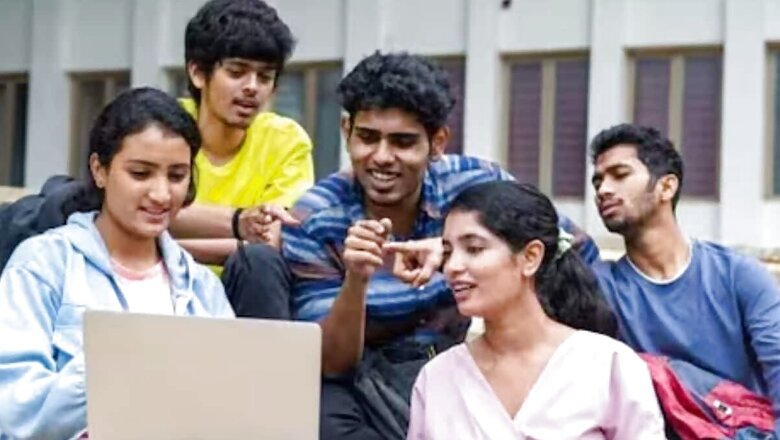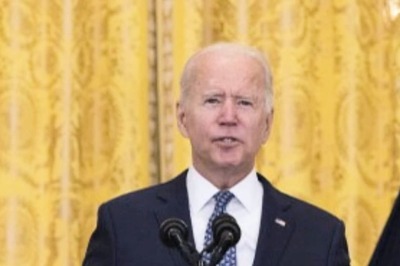
views
The implementation of the NEP will proceed with a phased and systematic approach. It represents not just a policy but a commitment to future generations.
— Narendra Modi
The National Education Policy 2020 (NEP) is a comprehensive initiative aimed at revitalising and modernising the education sector in India. Deeply integrated into Indian society, this policy serves as a catalyst for transforming the Indian education system. In the 21st century, where knowledge, information, and skills are crucial, the NEP encompasses all these elements. It embodies holistic development, Indic perspectives, and alignment with market needs, making it a model for contemporary global education policies. India stands at a crucial juncture in global politics, and the NEP is poised to enhance its soft power significantly. A significant achievement of the NEP is the shift from ‘What to Think’ to ‘How to Think’, focusing on nurturing national character through individual student development. It aims to propel India towards a $5 trillion economy by prioritising education that emphasises upskilling, integrated learning, and equity, aiming for a more inclusive and holistic education system.
The implementation of the NEP involves simultaneous monitoring and adaptation, significantly decentralising education in India and fostering targeted approaches across various educational sectors. This process engages diverse stakeholders such as government bodies, educational institutions, teachers, and the community. Continuous assessment at institutional levels addresses local needs, considering diverse socio-economic backgrounds and cultures. For instance, in rural areas, initiatives focus on enhancing digital literacy and vocational training to align education with local employment opportunities. Nationally, implementing agencies prioritize effective policy rollout, resource allocation, literacy rates, school enrollment, curriculum implementation, teacher training, and technology integration.
The NEP has opened new avenues for students through its emphasis on multidimensional, multidisciplinary, and holistic education. Institutions like the University of Delhi have adopted a comprehensive approach with seven verticals including core subjects, elective courses, skill enhancement, internships, and value-added courses. This framework allows students to tailor their education to their interests, career aspirations, and current market demands. Moreover, the policy promotes research, innovation, and entrepreneurship through new incubation centres that provide mentorship and resources for students pursuing entrepreneurial ventures or innovative solutions.
Universities nationwide are fostering extensive research collaborations at both national and international levels, offering unprecedented opportunities for students and faculty and facilitating industry-academia partnerships. Career Development Centres (CDCs) are being established across colleges and universities to offer comprehensive support, including personalised mentorship, ensuring students are well-prepared for the job market. At the University of Delhi, these centres are integrated with tailored mentorship programmes to meet individual career needs and aspirations, enhancing students’ professional readiness.
The implementation of the National Education Policy (NEP) has brought about a notable transformation in the understanding and practice of equity and inclusion across India, particularly at the grassroots level. Various governmental and educational agencies have been actively working to ensure that all students, including those from Socio-Economically Disadvantaged Groups (SEDGs), have equitable access to high-quality education. This concerted effort aims to achieve the NEP’s goals of fostering equity and inclusion in higher education.
For instance, Dr Babasaheb Ambedkar Open University’s Centre for Equal Opportunities and Inclusive Education has launched Atri, a specialised learning center dedicated to supporting disadvantaged groups such as transgenders and sex workers. Additionally, the university has established the Gargi Centre for Holistic Development of Women, which not only provides research grants but also offers customised courses developed in collaboration with industry partners.
Furthermore, the Central University of Tripura has introduced postgraduate level courses that teach the language of scheduled tribes to preserve and promote their cultural and linguistic heritage while providing higher educational opportunities. These efforts underscore a national commitment to broadening access to education and fostering inclusivity, ensuring that all segments of society can benefit from and contribute to India’s educational landscape.
Flexibility is a fundamental principle of the NEP, as the curriculum framework is designed to transform the educational landscape of the nation. Early childhood care and education have invigorated elementary and school education. Notably, under PM SHRI (PM Schools for Rising India) for school upgrades, 6,448 schools were selected, and Rs 630.11 crore was allocated to 6,207 PM SHRI schools across 27 States/UTs, including KVS/NVS. The Samagra Shiksha Scheme has been fully aligned with NEP 2020’s recommendations, with a total financial outlay of Rs 2,94,283.04 crore, of which Rs 1,85,398.32 crore is the Central share.
The PM Poshan Shakti Nirman Yojna is also aligned with NEP 2020’s recommendations. In higher education institutions, a systemic transformation is underway with the National Credit Framework, offering broad-based, multidisciplinary/interdisciplinary, holistic education with flexible curricula, creative subject combinations, multiple pathways, and equivalence establishment, facilitating both national and international mobility. Additionally, 7,568 Institutions’ Innovation Councils and approximately 104 Idea Development, Evaluation, and Application Labs (IDEA) have been established to foster research and innovation.
The National Education Policy (NEP) has triggered a nationwide digital revolution and significantly reduced the digital divide. A robust digital infrastructure stands out as one of the most comprehensive achievements of the NEP’s implementation drive. The National Educational Technology Forum (NETF) has played a crucial role in integrating technology with education. Anuvadini, an AI Text & Voice Translation Tool, has been launched to empower over 80 per cent of the population who identify as non-English native language speakers. Supported by AICTE, Anuvadini transcends language barriers by offering translation services in 22 regional Indian and foreign languages, thereby strengthening the principles of Ek Bharat Shrestha Bharat.
The University of Delhi has achieved a significant rise in the QS World University Rankings, climbing from 407th place last year to 328th in 2024, accompanied by notable advancements in employment outcomes. While several Indian educational institutions are steadily approaching the goals set by the National Education Policy, much remains to be accomplished across all fronts. Educators and students in remote regions face daunting challenges due to inadequate training and resources. Despite improvements in enrollment figures, meticulous planning and vigilant oversight are imperative at every stage. Addressing ingrained societal disparities is essential to enhance educational accessibility and equity. A dedicated budget tailored for rural areas is urgently required to effectively implement the NEP and bridge the digital divide in education.
The National Education Policy not only charts a course for educational reform but also promises a brighter future for generations to come through strategic implementation and unwavering commitment.
Digvijay Singh is an Assistant Professor at the University of Delhi and the Founder Director of the House of Political Empowerment Research and Innovation Foundation, a Delhi-based think tank. Views expressed in the above piece are personal and solely those of the author. They do not necessarily reflect News18’s views.



















Comments
0 comment